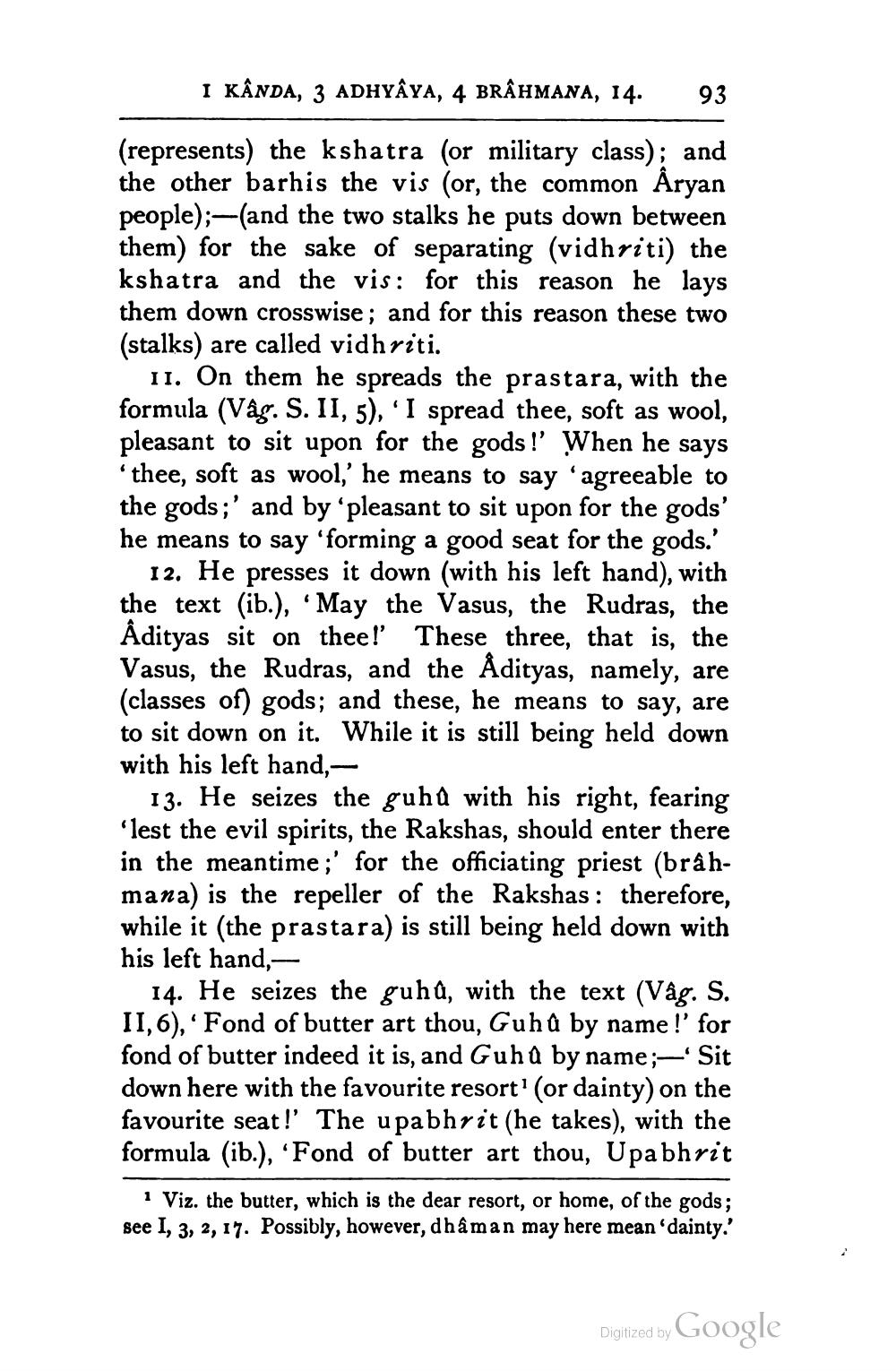________________
I KÂNDA, 3 ADHYAYA, 4 BRÂHMANA, 14.
93
(represents) the kshatra (or military class); and the other barhis the vis (or, the common Aryan people);—(and the two stalks he puts down between them) for the sake of separating (vidhriti) the kshatra and the vis: for this reason he lays them down crosswise; and for this reason these two (stalks) are called vidhriti.
11. On them he spreads the prastara, with the formula (Vág. S. II, 5), 'I spread thee, soft as wool, pleasant to sit upon for the gods! When he says 'thee, soft as wool,' he means to say 'agreeable to the gods;' and by ‘pleasant to sit upon for the gods' he means to say 'forming a good seat for the gods.'
12. He presses it down (with his left hand), with the text (ib.), ‘May the Vasus, the Rudras, the Adityas sit on thee! These three, that is, the Vasus, the Rudras, and the Adityas, namely, are (classes of) gods; and these, he means to say, are to sit down on it. While it is still being held down with his left hand,
13. He seizes the guhd with his right, fearing 'lest the evil spirits, the Rakshas, should enter there in the meantime;' for the officiating priest (brâhmana) is the repeller of the Rakshas: therefore, while it (the prastara) is still being held down with his left hand,
14. He seizes the guhů, with the text (Våg. S. II,6), Fond of butter art thou, Guhů by name!' for fond of butter indeed it is, and Guhů by name;— Sit down here with the favourite resort' (or dainty) on the favourite seat!' The u pabhrit (he takes), with the formula (ib.), 'Fond of butter art thou, Upabhrit
1 Viz. the butter, which is the dear resort, or home, of the gods; see I, 3, 2, 17. Possibly, however, dhaman may here meandainty.'
Digitized by Google




